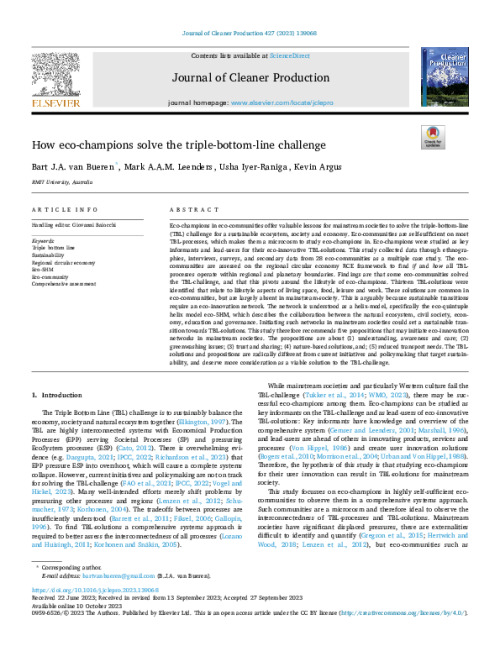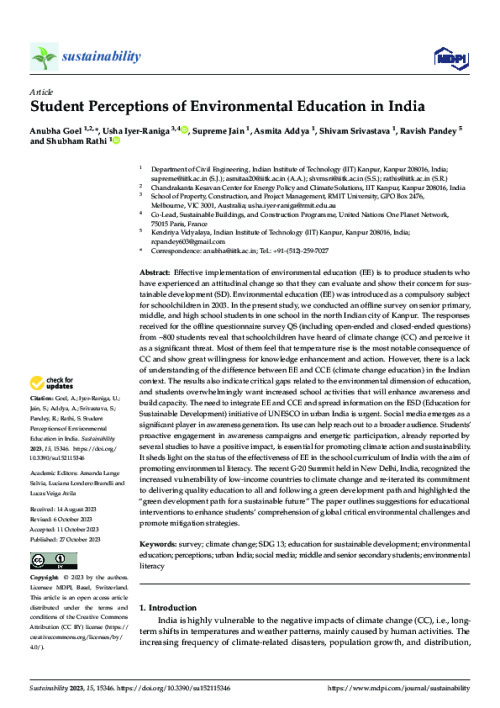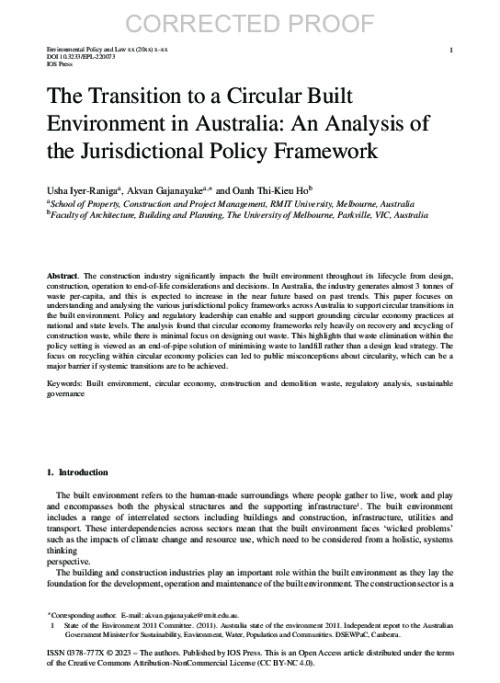COP27 - Creating a Circular Built Environment: the Why and How

Approximately half of all extracted resources globally are used for the built environment, and 11% of global GHG emissions are attributed to the embodied carbon found in construction materials, with another 28% of global emissions from energy use in buildings. Simultaneously, nearly 40% of urban solid waste comes from construction and demolition. By 2025, it is expected that 2.2 billion tons of construction waste will be generated worldwide (nearly double the amount of waste in 2018).
A sustainable built environment is circular, designed for longevity, flexibility, adaptability, assembly, disassembly, reuse and recoverability, and considers future climate risks. It uses low-carbon, low-impact, non-toxic materials and it recovers used resources (materials and products on-site or from other sites). It is powered by renewable energy, ensures sustainable water consumption and enhances the wellbeing and safety of people.
The transition to a sustainable built environment requires the use of a circular economy - which demands radical, meaningful transformation centered around designing out waste, enhancing product lifecycles, and changing consumption habits. There is the need for major innovation in materials, new regulation to make circular products, net zero buildings and choices cost competitive, investment in research and innovation, major transformation of design practices and construction materials and waste management.
Speakers
- Catriona Brady, Director of Strategy and Development, World Green Building Council (Moderator)
- Luca de Giovanetti, Senior Manager Built Environment, WBCSD (Moderator)
- Gonzalo Muñoz, Chairman of the board of TriCiclos
- Kristin Hughes, Director of the Global Plastic Action Partnership & Member of the Executive Committee, World Economic Forum
- Miranda Schnitger, Climate Lead, Ellen MacArthur Foundation
- Usha Iyer-Raniga, Co-lead, Sustainable Buildings and Construction, United Nations 10YFP
- Manuel de Araújo, Mayor of Quelimane, Mozambique
- Dr Matt Kennedy, Energy and Environmental Scientist and Engineer, ARUP
- Dr Magash Naidoo, Head, Circular Development, ICLEI
- Magali Anderson, Chief Sustainability and Innovation Officer, Holcim
Professor Usha Iyer-Raniga is at the School of Property and Construction Management at RMIT University. Usha is co-leading the One Planet Network’s Sustainable Buildings and Construction Programme (SBC), United Nations 10 Year Framework of Programmes on Sustainable Consumption and Production (UN 10FYP SCP) aligned with Sustainable Development Goal 12, as well as the newly formed Integrated Platform for Circular Economy, Climate Resilience, and Energy. Usha participated in the panel discussions as an expert and this event is directly related to the work of the OPN SBC programme.
Speakers:
Usha Iyer-Raniga
-
Professor
-
RMIT University
Supporting document(s)



